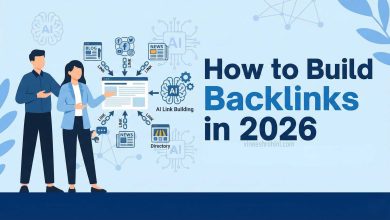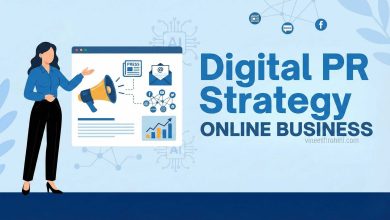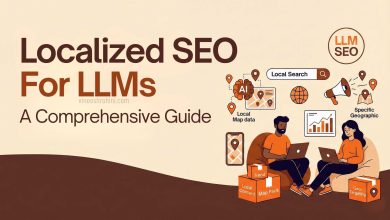Digital Marketing Strategies For 2025 : Comprehensive Guide
Digital Marketing Strategies : The digital marketing landscape evolves rapidly, shaped by advances in technology, changing consumer behavior, and emerging platforms. As we approach 2025, businesses must adapt to a dynamic environment by leveraging innovative strategies to maintain relevance and stay competitive.
Table of Contents
This essay explores the digital marketing strategies that will define success in 2025, focusing on personalization, AI-driven solutions, voice and visual search, sustainability, and immersive technologies.
1. Hyper-Personalization: Meeting Individual Needs

Personalization is no longer a luxury; it’s an expectation. By 2025, hyper-personalization, powered by data analytics and AI, will redefine how brands interact with customers. Unlike traditional segmentation, hyper-personalization uses real-time data to deliver highly tailored experiences across various touchpoints.
Also Read : What is Digital Advertising ?
- Customer Journey Mapping: Marketers will invest in tools that offer a 360-degree view of customers, enabling them to anticipate needs and deliver relevant content.
- Dynamic Content Delivery: Websites, emails, and advertisements will adapt to individual user preferences, ensuring every interaction feels uniquely crafted.
- Predictive Analytics: Predicting consumer behavior through data patterns will allow marketers to offer solutions even before a need arises.
Brands that master hyper-personalization will foster deeper connections, leading to higher engagement and loyalty.
2. AI and Automation: Revolutionizing Efficiency
Artificial intelligence (AI) will remain at the core of digital marketing strategies, transforming how businesses analyze data, create content, and engage audiences.
- AI-Powered Chatbots: These tools will handle customer interactions 24/7, offering personalized assistance and reducing response times.
- Content Creation: AI tools like GPT and others will assist in generating high-quality, targeted content faster than ever before.
- Programmatic Advertising: Automated ad buying will ensure campaigns reach the right audience at the right time, optimizing ROI.
By integrating AI into marketing operations, businesses can scale efforts without compromising quality or accuracy.
3. Voice and Visual Search Optimization
Search behaviors are changing as consumers increasingly rely on voice and visual inputs. By 2025, optimizing for these formats will be crucial.
- Voice Search SEO: With the rise of smart speakers and voice assistants, marketers will need to focus on conversational keywords and natural language queries.
- Visual Search Integration: Platforms like Pinterest and Google Lens enable users to search using images. Businesses must ensure their product visuals are high-quality and include metadata for discoverability.
These technologies will push marketers to rethink how they structure and present information online.
4. Sustainability Marketing: Aligning with Consumer Values
Consumers are becoming more environmentally conscious, and sustainability is no longer a trend but a necessity.
- Green Branding: Companies will need to demonstrate their commitment to sustainability through transparent practices and eco-friendly products.
- Purpose-Driven Campaigns: Highlighting initiatives that promote social and environmental responsibility will resonate with audiences.
- Sustainable Content: Marketing materials themselves—such as digital assets—will reflect a reduced carbon footprint, appealing to eco-aware consumers.
Brands that fail to align with sustainability values risk alienating a significant portion of their audience.
5. Immersive Technologies: AR, VR, and the Metaverse
Augmented Reality (AR), Virtual Reality (VR), and the metaverse will revolutionize how brands engage consumers, creating memorable experiences.
- AR in Ecommerce: Allowing customers to try products virtually—such as clothing, furniture, or makeup—will enhance the online shopping experience.
- Virtual Reality Events: From virtual showrooms to immersive brand events, VR will offer unique avenues for engagement.
- Metaverse Marketing: Businesses will establish virtual storefronts or sponsor metaverse experiences, targeting tech-savvy audiences.
These technologies will blur the lines between physical and digital spaces, opening new frontiers for creativity.
6. Content Strategies: Authenticity and Micro-Moments
The demand for authentic and real-time content will shape digital marketing in 2025.
- User-Generated Content (UGC): Encouraging customers to create and share content will foster trust and enhance brand credibility.
- Short-Form Video: Platforms like TikTok and Instagram Reels demonstrate the power of concise, impactful storytelling.
- Micro-Moments: Capturing users’ attention during fleeting moments—such as while commuting or waiting in line—will require snackable and highly relevant content.
By prioritizing authenticity and catering to short attention spans, brands will remain relatable and engaging.
7. Data Privacy and Ethical Marketing

As regulations around data privacy tighten, ethical marketing practices will be paramount.
- Transparency: Clear communication about data usage will build trust with consumers.
- First-Party Data: With third-party cookies phasing out, businesses will focus on collecting data directly from customers through surveys, email sign-ups, and interactions.
- Consent-Based Marketing: Opt-in strategies will replace intrusive methods, ensuring compliance with global data protection laws.
Ethical marketing will not only ensure legal compliance but also enhance brand reputation.
8. Community-Centric Marketing
Building online communities will be central to fostering brand loyalty and advocacy.
- Niche Communities: Brands will create and nurture groups around shared interests or values, offering exclusive content and engagement.
- Social Commerce: Platforms like Instagram and Facebook will facilitate seamless shopping experiences within communities.
- Ambassador Programs: Empowering loyal customers to act as brand ambassadors will amplify reach and authenticity.
A strong sense of community will create emotional connections, driving long-term success.
Digital Marketing Strategies – Conclusion

The future of digital marketing in 2025 lies in understanding and adapting to rapidly changing consumer behaviors and technological advancements. Strategies centered on hyper-personalization, AI-driven solutions, voice and visual search, sustainability, immersive technologies, and authentic content will define successful campaigns.
Buy Now : SEO Mastery Detailed Course
Marketers must also prioritize ethical practices, community building, and staying ahead of emerging trends to remain competitive. By embracing these strategies, businesses can navigate the complexities of the digital world and forge stronger connections with their audiences, ensuring sustained growth and relevance in the years to come.
Keywords : Digital Marketing Strategies – Digital Marketing Strategies 2024 – Digital Marketing Strategies 2025



